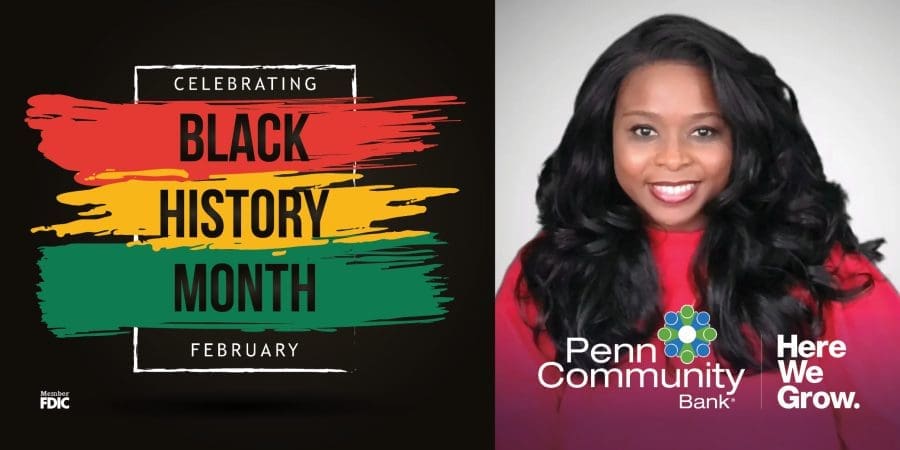
“Growth occurs when and where we are included, nourished, respected, and empowered.”
That was the message shared by Tonya Echols as part of Penn Community Bank’s Multi-Ethnic Employee Resource Group’s (ERG) first Lunch & Learn focused on the importance of building generational wealth, particularly in Black families. Echols, an executive coach and leadership consultant, was the keynote speaker at the program planned in conjunction with the start of Black History Month.
Echol’s presentation laid out the challenges faced by Black and minority families to cultivate generational wealth – commonly defined financial assets passed from one generation of a family to another. While this concept sounds like a common practice, she shared that this is not always the case for groups who historically have been disadvantaged or who arrived in the United States with very little.
Preventing this long-term financial stability is what Echol calls the “wealth gap,” or the disparity in average household net worth between white and black households. Components that attribute to this discrepancy include discrimination, limited access to credit or capital, lack of property ownership, lack of financial literacy, and political underrepresentation. Combined, these elements work against Black families and other minorities from gathering wealth aside from a paycheck.
The truth is: when you’re just trying to get by, you don’t – or can’t – think about saving. When families fall on tough times or live paycheck to paycheck, there’s nothing to leave for others or set aside for the future. So, what does generational wealth look like for someone who doesn’t have money in the bank?
One of the most powerful things is developing and encouraging financial literacy, says Echols. Financial literacy and building generational wealth can come in different forms, like conversations about money and budgeting with your children and creating relationships with financial institutions like a bank, financial planner, or tax advisor. Opening your child a savings or checking account can be the very first step. In some cases, it may take unlearning what you know. For example, if a grandparent didn’t like stocks because they were impacted by the Great Depression, that doesn’t mean you should be weary of the stock market, too.
The lessons shared by Echols and the discussion among team members ensure Penn Community Bank continues to understand the needs of our customers – regardless of background. We are committed to serving our community, including by increasing access to financial educations and developing banking products – like our Bank On-certified Access Checking account – to address today’s challenges.
Remember, building generational wealth starts with changing your mindset about money. With the right financial partner, you can prepare for the future while dealing with the present.




